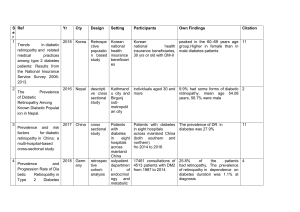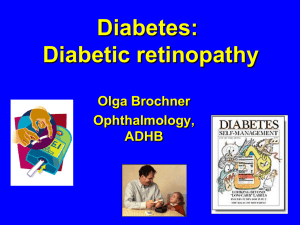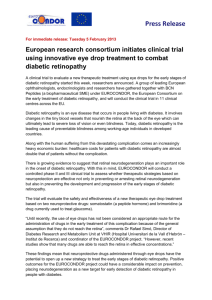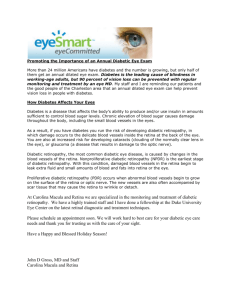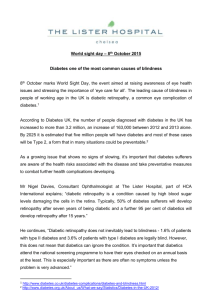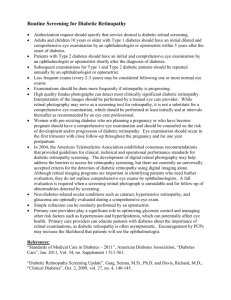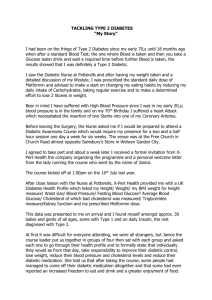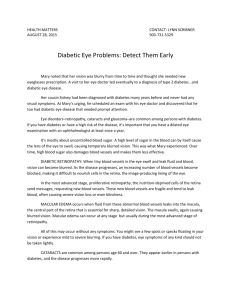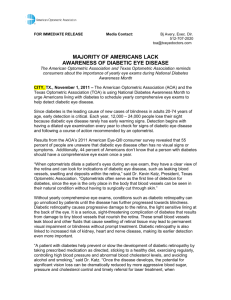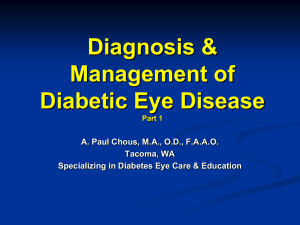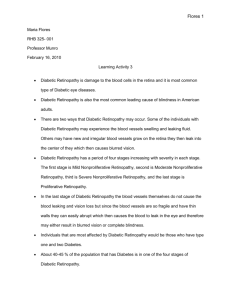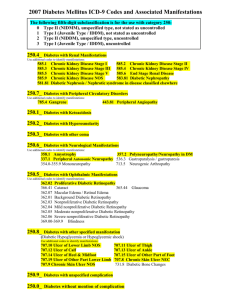Diabetic Retinopathy
advertisement
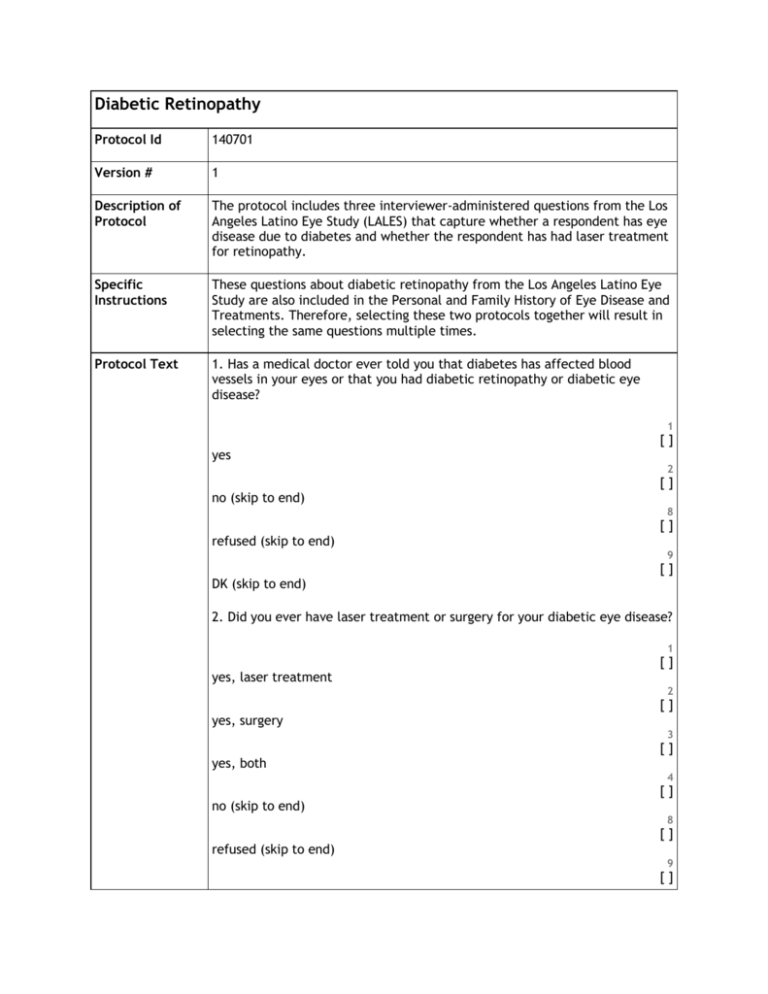
Diabetic Retinopathy Protocol Id 140701 Version # 1 Description of Protocol The protocol includes three interviewer-administered questions from the Los Angeles Latino Eye Study (LALES) that capture whether a respondent has eye disease due to diabetes and whether the respondent has had laser treatment for retinopathy. Specific Instructions These questions about diabetic retinopathy from the Los Angeles Latino Eye Study are also included in the Personal and Family History of Eye Disease and Treatments. Therefore, selecting these two protocols together will result in selecting the same questions multiple times. Protocol Text 1. Has a medical doctor ever told you that diabetes has affected blood vessels in your eyes or that you had diabetic retinopathy or diabetic eye disease? 1 [] yes 2 [] no (skip to end) 8 [] refused (skip to end) 9 [] DK (skip to end) 2. Did you ever have laser treatment or surgery for your diabetic eye disease? 1 [] yes, laser treatment 2 [] yes, surgery 3 [] yes, both 4 [] no (skip to end) 8 [] refused (skip to end) 9 [] DK (skip to end) 2a. How many different times have you had laser treatment or surgery for diabetic eye disease? ___# times 98 [] refused 99 [] DK Selection Rationale The Los Angeles Latino Eye Study (LALES) was vetted against several other similar protocols and was chosen because it specifically asks the respondent whether diabetes has caused eye disease and the history of laser surgery in both eyes. Source University of Southern California, Los Angeles Latino Eye Study (LALES). 20002003 Section D: Ocular Disease History (Questions 21, 22, and 22a). Language English, Spanish Participant Although the original study by was performed on adults aged 40 years old and older, the Diabetes Working Group recommends that these questions can be used for all adults. Personnel and Training Required The interviewer must be trained to conduct personal interviews with individuals from the general population. The interviewer must be trained and found to be competent (i.e., tested by an expert) at the completion of personal interviews. The interviewer should be trained to prompt respondents further if a "don’t know" response is provided. Equipment Needs These questions can be administered in a computerized or non-computerized format (i.e. pencil and paper instrument). Computer software is necessary to develop computer-assisted instruments. The interviewer will require a laptop computer/handheld computer to administer a computer-assisted questionnaire. Standards Standard Name Common Data Elements (CDE) Person Diabetic Retinopathy 3070684 CDE Browser Assessment Description Text Logical Observation Diabetic retinopathy proto Identifiers Names and Codes (LOINC) ID Source 62801-6 LOINC General References American Diabetes Association. (2009). Diagnosis and classification of diabetes mellitus. Diabetes Care, 32(Supplement 1), S62 - S67. Protocol Type Interviewer-administered questionnaire Derived Variables None Requirements Requirement Category Required Average time of greater than 15 minutes in an unaffected individual No Average time of greater than 15 minutes in an unaffected individual Major equipment No This measure requires a specialized measurement device that may not be readily available in every setting where genome wide association studies are being conducted. Examples of specialized equipment are DEXA, Echocardiography, and Spirometry Specialized requirements for biospecimen collection No This protocol requires that blood, urine, etc. be collected from the study participants. Specialized training This measure requires staff training in the protocol methodology and/or in the conduct of the data analysis. No
